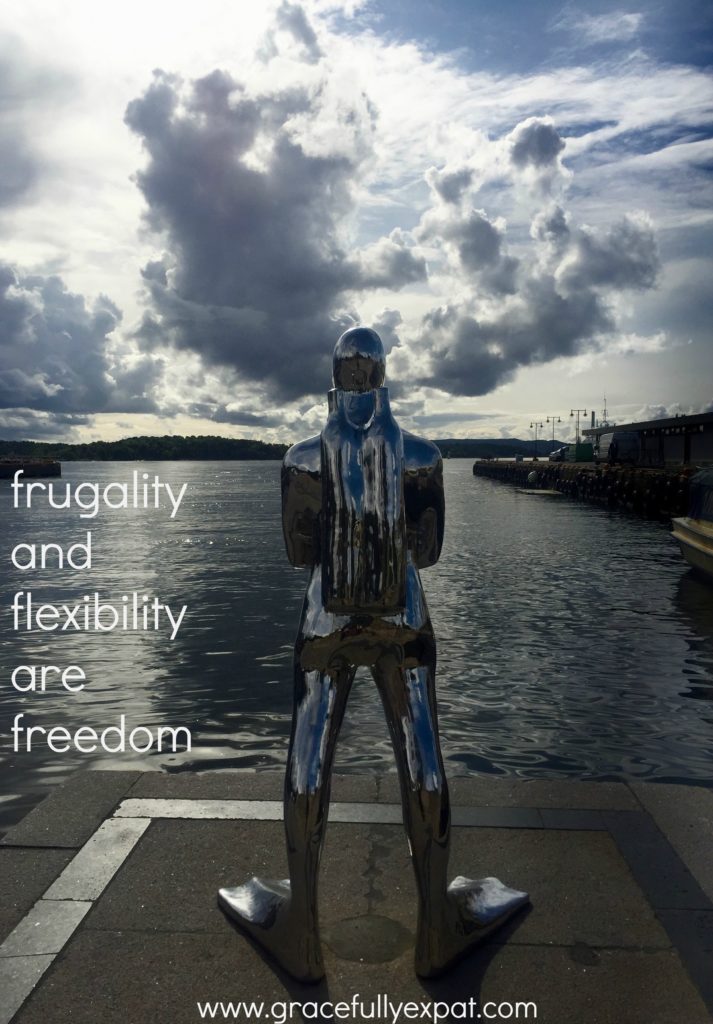
What if there were a tool that could enhance your freedom and improve your life more powerfully than mere monetary wealth? I read, write, and think about money and personal finance a lot but I’m a firm believer that money is far from the most important thing in life. Certainly, if used wisely, money can be a tool that increases access to the most important things. But there are other tools in our arsenal that can be even more impactful, when wielded intentionally.
I find a lot of value in the principles of minimalism, but I’m aware it doesn’t appeal to everyone. While many aspects of minimalism might in fact be more broadly applicable than is sometimes assumed, there are two related concepts that I do think can be employed by everyone, regardless of their position or circumstances. These are the complementary practices of frugality and flexibility. If taken as practices, to engage with repeatedly and continually, these two ideas can transform the way you live, travel, and move throughout the world and towards your goals.
Frugality
Thanks to excellent bloggers such as the Frugalwoods, the concept of frugality is enjoying something of a revival. The word used to carry a sort of dour, joyless undertone, but that’s an unnecessary association that’s quickly dissipating. I consider the concept of frugality to be centred around appreciation and mindfulness of value. And that definition of value should be expansive enough to include value as measured not just in money, but also in time, focus, energy, and attention. No matter how much or how little material wealth we may have (and that itself is always a relative matter), we can all practice avoidance of wastefulness and excess. In fact, the practice of frugality is one of the most freeing aspects of minimalism. Best yet, one needn’t identify as a minimalist to enjoy the freedom-enhancing benefits of frugality.
For me, one of the most important elements in a practice of frugality is an honest assessment of value, and of one’s needs. This assessment is uniquely personal to each individual, but it does require a high level of self-honesty to be used to its full effect. For example, should the frugal traveller, be she a vacationer, an expat, or a digital nomad, take a taxi or the local public transport to and from the airport? My personal vote will almost always be to go for public transport, but someone who suffers from severe motion sickness might make another value assessment. I’d caution, however, that if the full benefits of frugality are sought, enduring or even seeking out some level of discomfort could become an occasional practice. I genuinely enjoy discovering both how resilient I can be, and, much more frequently if I’m honest, how little discomfort is really involved in making the more frugal choice.
But how, specifically, does this practice translate into greater freedom? It’s simple: the fewer resources you need to consume, the freer you are. This is especially true for the nomadic. This means you’re free to go more places, do more, experience more, without the shackles of many expensive (in terms of money, time, or otherwise) self-imposed ‘requirements’. If you build up your frugality muscles, you’ll simply need fewer resources to sustain your travels. You may find you are just as happy in a small, modest accommodation as in an expensive hotel, just as satisfied by local fare, stumbled upon while walking around the neighbourhood, as in a pricey, top-rated restaurant. It’s not that those experiences don’t have their place, but with no baseline concept of frugality, it’s all too easy to allow them to greedily take over, and subsume the other experiences. Too much luxury is an expensive prison. Frugality unshackles us from that prison, and opens up ever more of the world for us to explore.
Flexibility
Closely related to frugality is the practice of flexibility. Not necessarily in the yoga sense of the word (although that can be a good metaphor), I see flexibility simply as openness and adaptability to a variety of circumstances. It means not clinging to preconceived notions of how we think things are or should be. It means adapting to change or to the conditions we find ourselves in with grace and good humour. And it means practicing putting things in perspective. With a little effort and intention, it can be an incredibly powerful tool in your freedom toolkit.
Firstly, the more flexible and adaptable you are, the easier your practice of frugality will become. But perhaps even more important is how it improves your experience of the world in general. When you practice dealing with delays, setbacks, unexpected challenges, and disappointments with a positive attitude and a sense of humour, you are building up an incredibly valuable skill. It allows you to move through the world much more freely and confidently. You can start to see everything as simply another interesting experience, when you know you’re adaptable enough to make the best of it.
How do frugality and flexibility improve location independence and financial independence?
Both frugality and flexibility are tools that serve those pursuing location independence and/or financial independence especially well. For one, travel requires both, and provides plenty of opportunities to put both concepts into practice. And so does being mindful with money. In fact, I’d go so far as to say that those who want to enhance their location and financial freedom could find no tools more powerful than frugality and flexibility combined.
It makes sense to approach both frugality and flexibility as practices to continually incorporate into our lives, as opposed to unreachable ideals that are met with either success or failure. When we cultivate a practice mindset, then success is simply defined as returning to the practice. Then, all the results that come with the practice are just more interesting bits of data. In that way, we can avoid both judging ourselves to harshly, or being too self-congratulatory. And, as with a yoga practice, for example, there won’t always be linear progress, and that’s OK.
Even once we become location independent or financially independent, we can continue these practices. The person who has meticulously planned their 4% withdrawal rate might incorporate a bit of frugality and flexibility should they encounter a market downturn in their early years of retirement, for example. And if they’ve spent some time getting accustomed to the practice, they may be able to flex their plans, and to be a bit more frugal, and avoid too much unnecessary stress and worry in what might otherwise be a rather stressful time. The person who’s planned a few stops ahead as a digital nomad might reassess based on changing personal needs, or changing conditions in their current or future locations. The key is being willing to re-evaluate and adapt, ideally with a smile.
Even those who don’t identify as minimalists can benefit from incorporating more frugality and flexibility into their lives. It will continue to open up more doors and enhance your freedom, and your overall experience and enjoyment of life.


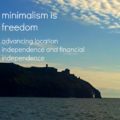
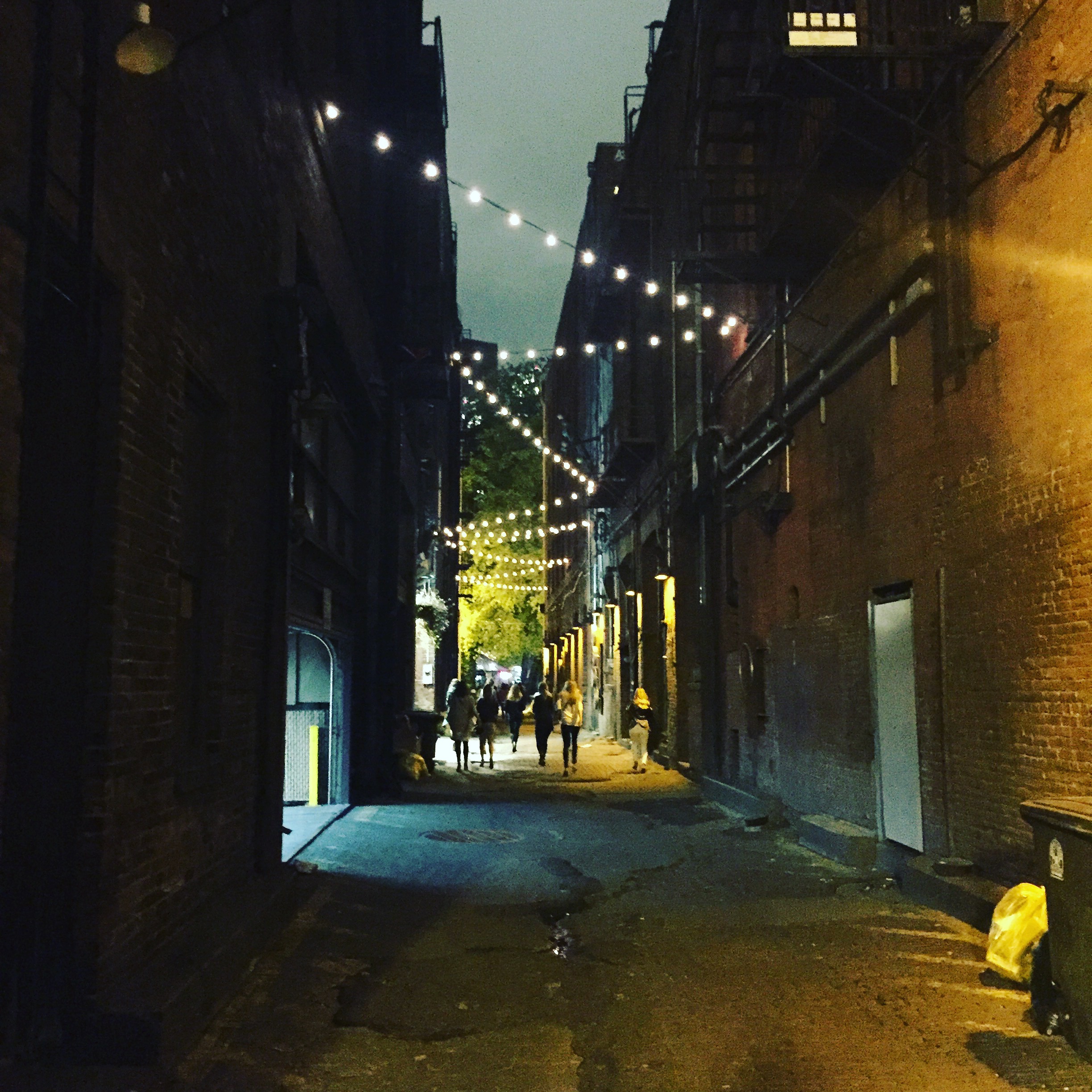
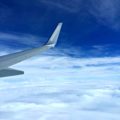
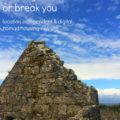
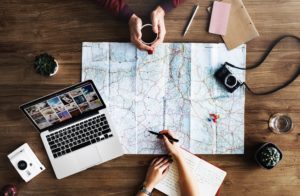

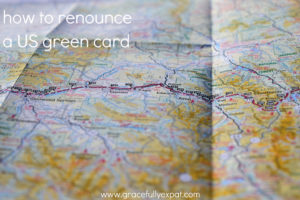
This was so much fun to read! I’m certainly rooting for you and your new adventure. I can’t wait to read more in the future.